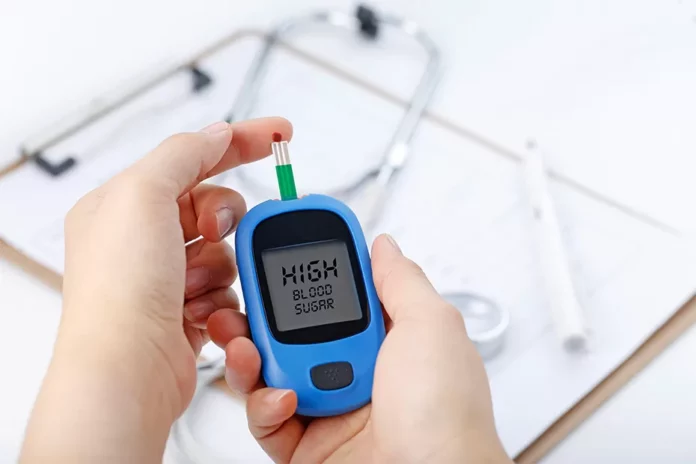Dr. Indrajeet Tyagi and Dr. Iranna Hirapur
Common dietary and lifestyle causes of diabetes in Ayurveda are excessive consumption of kapha aggravating foods (sweet, salty and sour in taste), continuous eating, lethargic lifestyle, lack of physical activities and exercises, excess sleeping, genetic factor, stress, fear and long-standing illness. Since diet plays a significant role in management of diabetes, here are some foods you should avoid when you are preparing a meal planning for yourself or for someone in your family who has diabetes.
There are certain food items that may not lead to sugar spikes, but can lead to poor insulin sensitivity, increase in cholesterol and slow down the metabolism. There are certain foods that people with diabetes are advised not to consume like simple carbs, beverages with added sugar, packaged foods and deep-fried foods among many others, as they raise risk of elevated sugar levels and can cause several health complications in long run. Just because these foods are bad for diabetes does not mean you can never eat them. You can consume them occasionally in moderation.
What foods people with diabetes should avoid?
1) White Rice, Bread and Flour: White bread, rice and refined-flour foods have high levels of carbohydrates. Eating such foods will significantly increase your blood sugar level. Moreover, gluten-free products are known to raise blood sugar, with rice-based products having the greatest effect. Replacing white bread with high-fiber bread will significantly reduce blood sugar level.
2) Artificial sweeteners: Artificial sweeteners are synthetic compounds that stimulate the sweet taste receptors on the tongue, without any added calories. Eating carbohydrates increases the blood sugar levels and insulin is released to bring them back to normal. Artificial sweeteners are said to interfere with this process. Although short-term use of artificial sweeteners will not raise blood sugar levels, but long-term effects in humans are unknown.
3) Sugar-free products: Sugar-free does not necessarily mean carbohydrate-free or calorie-free. Although some sugar substitutes do not have calories, many of them do. If you eat many ‘sugar-free’ foods that may contain sweet tasting substances like sorbitol, mannitol, xylitol, isomalt, and hydrogenated starch hydrolysates. These ‘sugar alcohols’ are technically not sugar, but are high in carbohydrates. These foods affect your blood glucose just as sugar-containing foods would, in proportion to the number of carbohydrates in each serving of the food.
4) Dried fruits: Fruit is a great source of several important vitamins and minerals, including vitamin C and potassium. When a fruit is dried, the process results in loss of water that leads to a higher concentration of these nutrients. Unfortunately, the sugar content also becomes more concentrated. Sticking with low-sugar fruits like berries or an apple can provide tremendous health benefits while keeping your blood sugar in the target range. The National Institute of Diabetes, Digestive, and Kidney Diseases recommends that people with diabetes include fruits in a balanced diet. Even fruit juices have high sugar content. Avoiding dried fruits can help reduce the risk of blood sugar spiking.
5) Energy bars: Energy bars are not an exception, as you need to read the labels. They may appear to be a healthful snack choice, but many energy bars contain high levels of added sugar and high glycemic carbohydrates that can lead to a sharp increase in blood sugar levels.
6) Curd: Curd can increase Kapha Dosha in the body, making one gain more weight and slowing down the metabolism and you become lazy. Curd as per the Ayurveda can also affect nutrient absorption and increase cholesterol levels. According to Ayurveda, curd is heating in nature and not cooling, as people believe it. It is also heavy (guru) to digest and slimy (sticky) in nature. It increases kapha Dosha in body.
Kapha also blocks your channels, which can lead to poor absorption of nutrition (nutrition deficiency) and even increase cholesterol and triglycerides. Therefore, it is best to avoid curd by people with diabetes, obesity, cholesterol and poor insulin sensitivity. Instead of curd, one can consume occasionally buttermilk, which is prepared with more water.
7) White salt: While white salt does not directly lead to sugar spikes, it can increase risk of blood pressure for people with diabetes, which could further cause heart complications, kidney disease or stroke and other diabetes complications. Limiting regular salt or switching to rock salt/Himalayan pink salt can definitely help you prevent or control high blood pressure, heart disease and other diabetic complications.
8) Jaggery: While Jaggery is considered a safer alternative as compared to sugar for diabetics; it can still cause sugar spikes, even though Jaggery is made with natural process without chemicals and is nutrition rich. Therefore, you must consume Jaggery it in moderation and do not overeat.
Diet & lifestyle changes can help to control diabetes but for a long-term solution, consult a doctor to get the best holistic treatment for diabetes.
(Authors: Dr. Indrajeet Tyagi, M. R. Medical College, Kalaburagi, Karnataka and Dr. Iranna S. Hirapur, MD, DM (Cardiology) Interventional Cardiologist at Heart Foundation, Kalaburagi, Karnataka)







